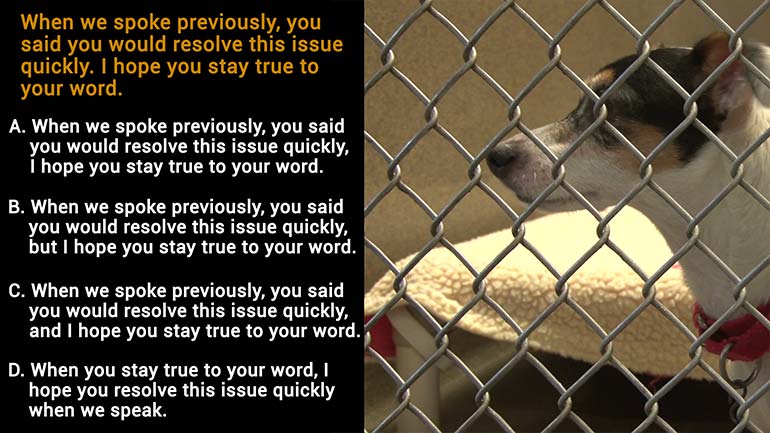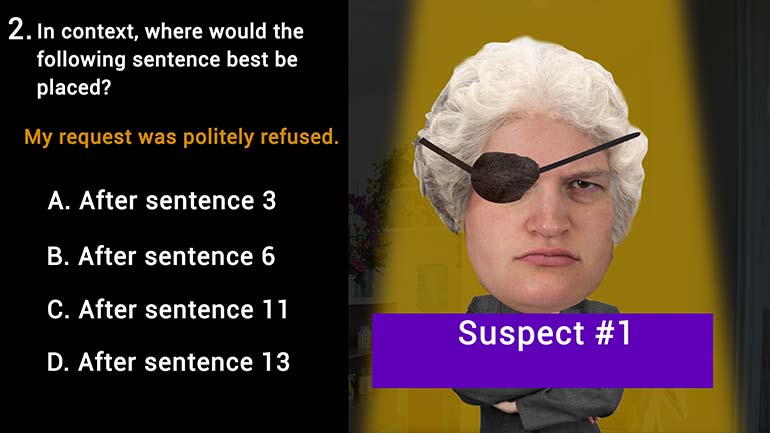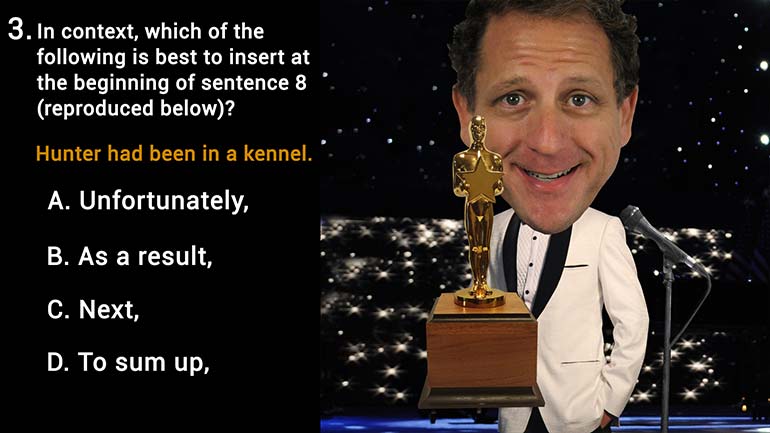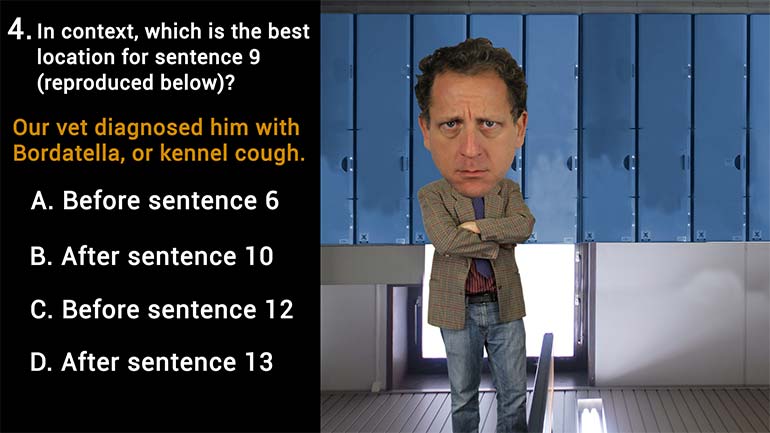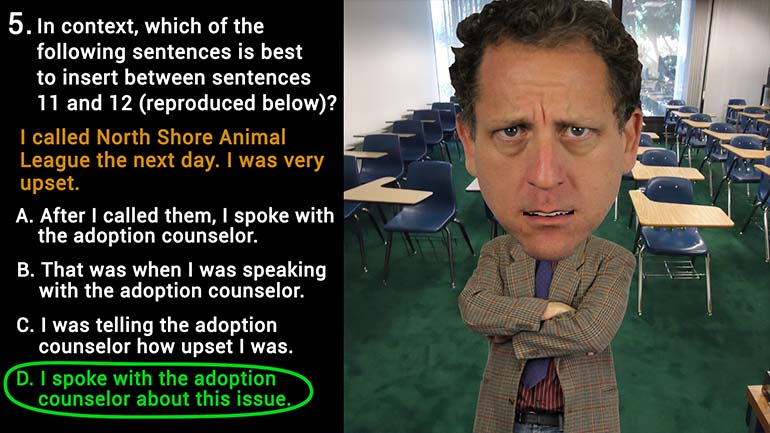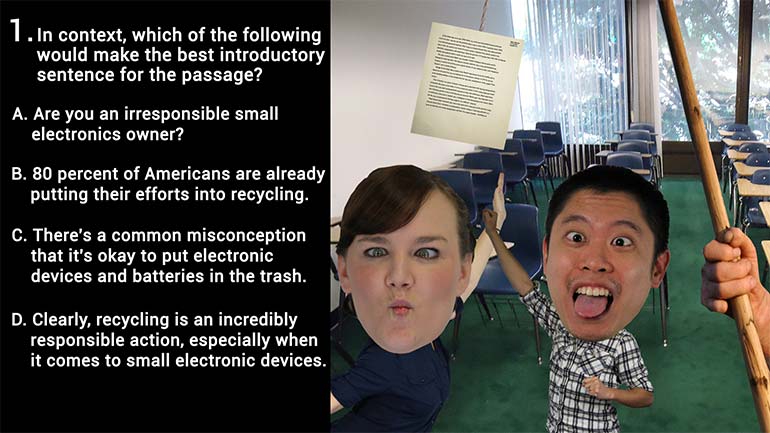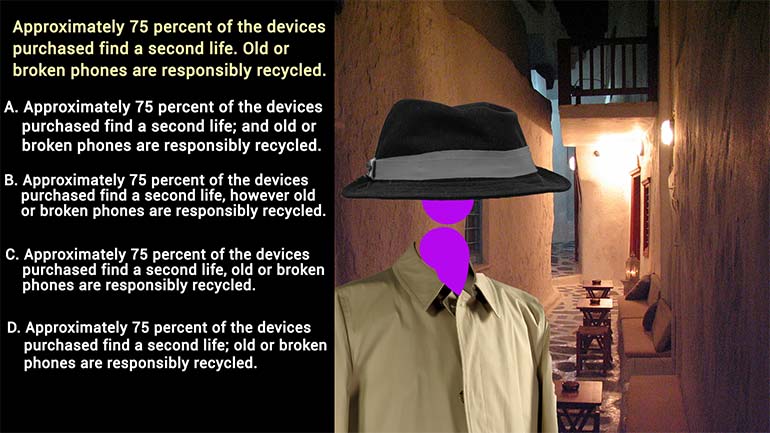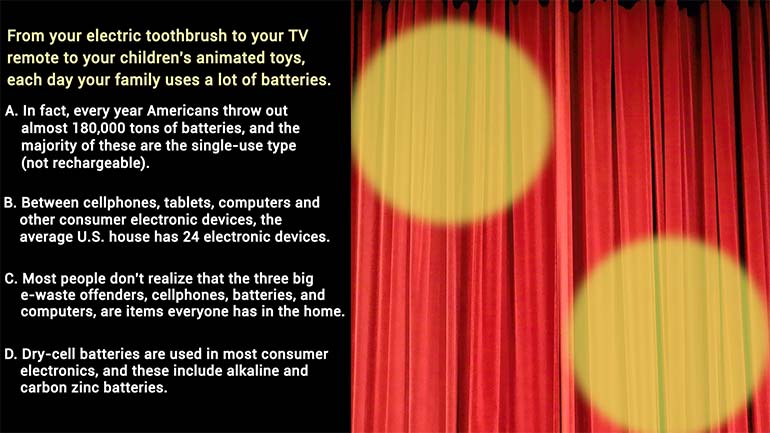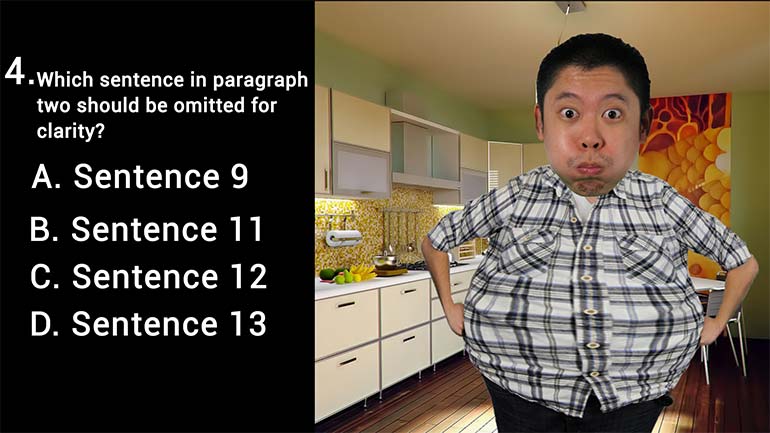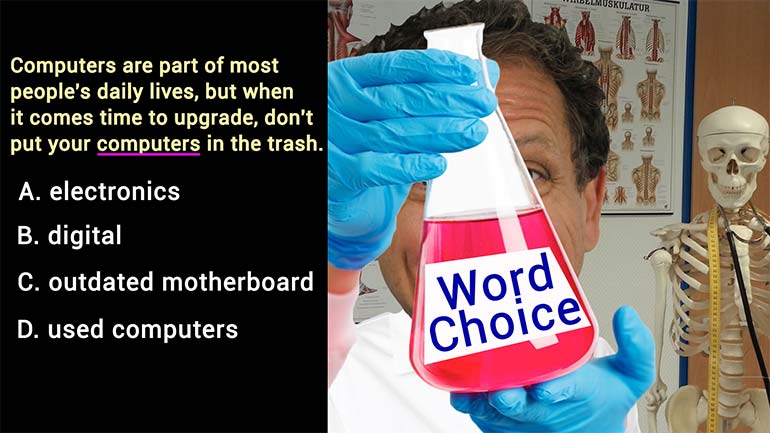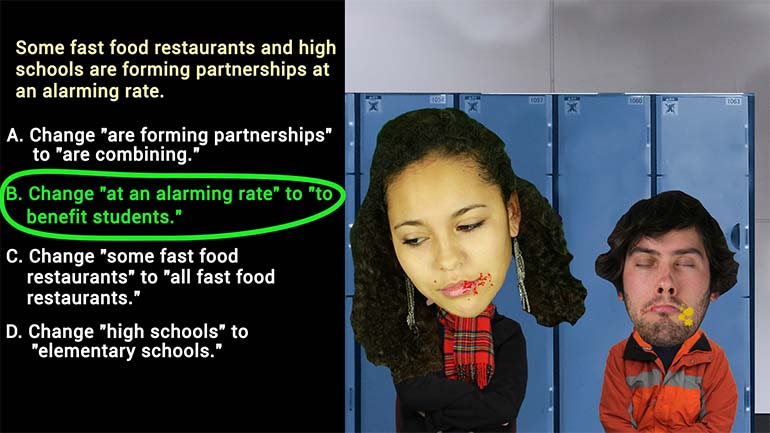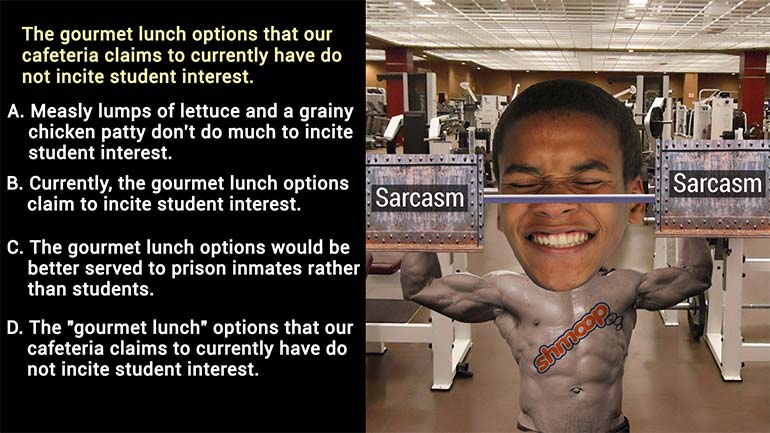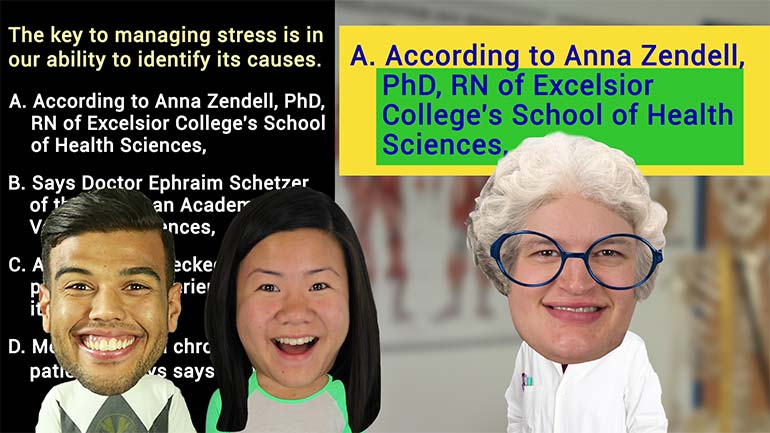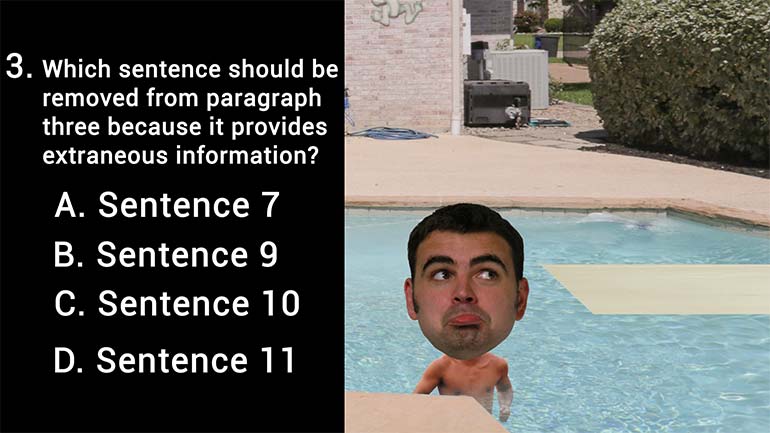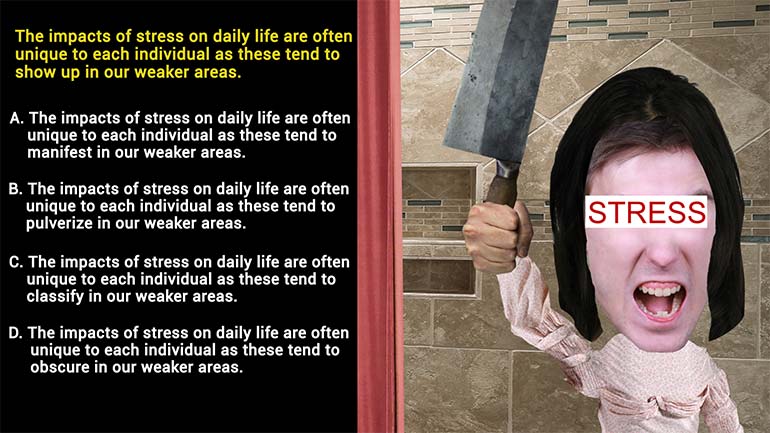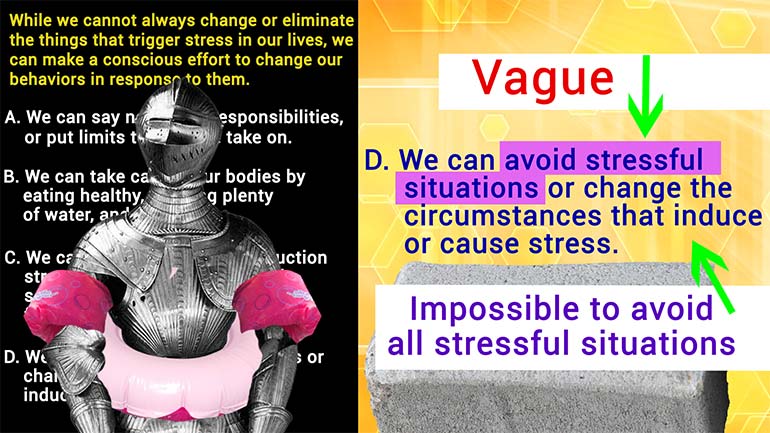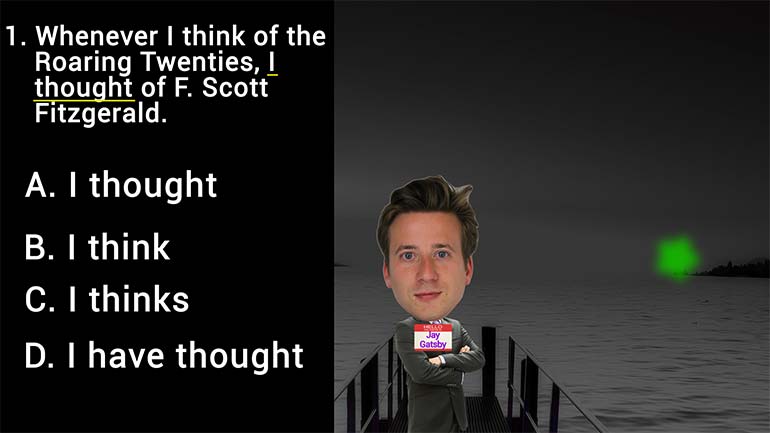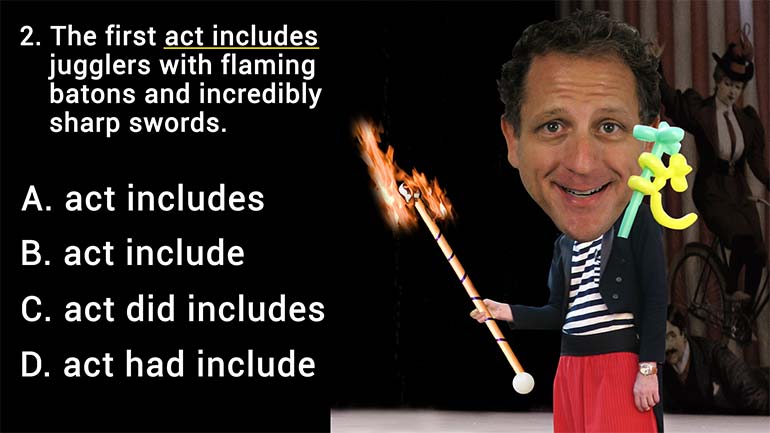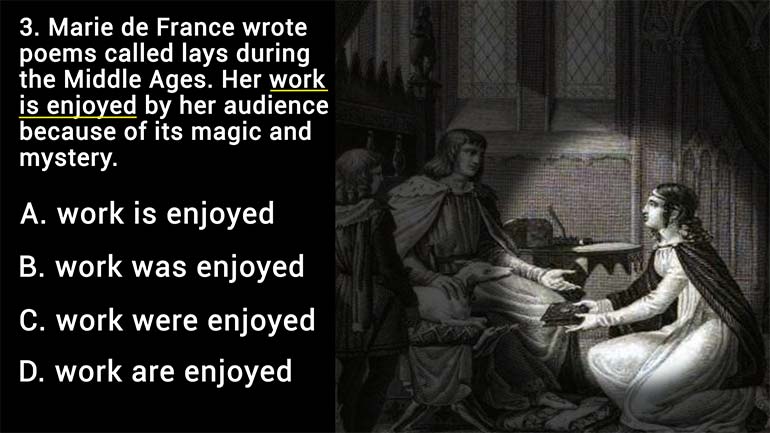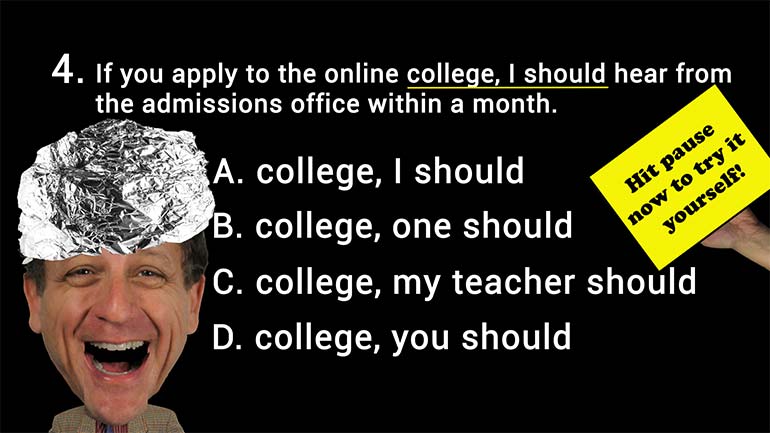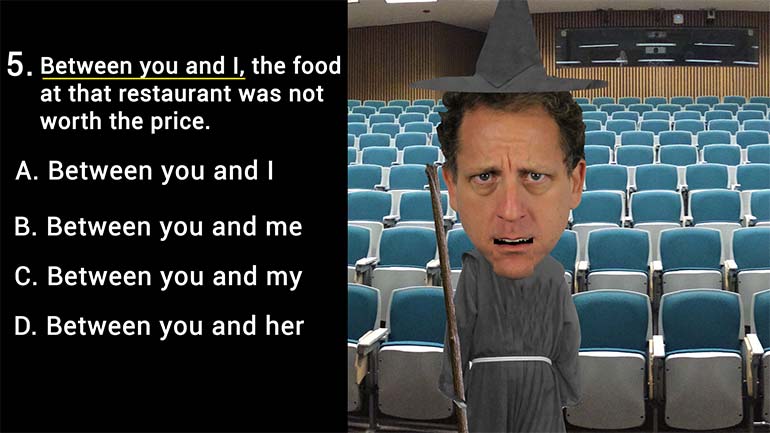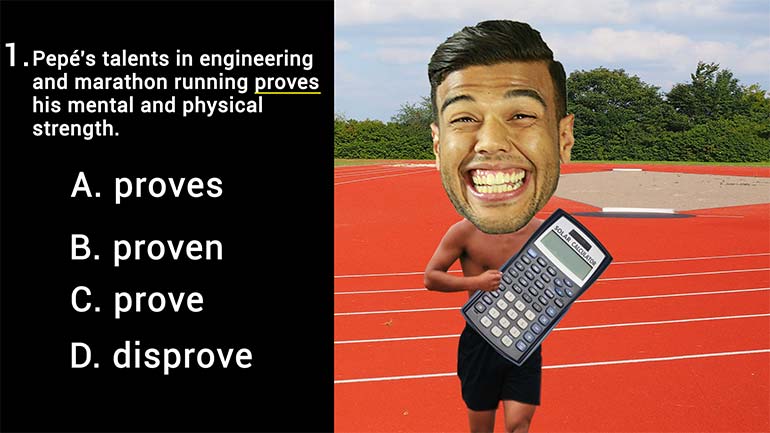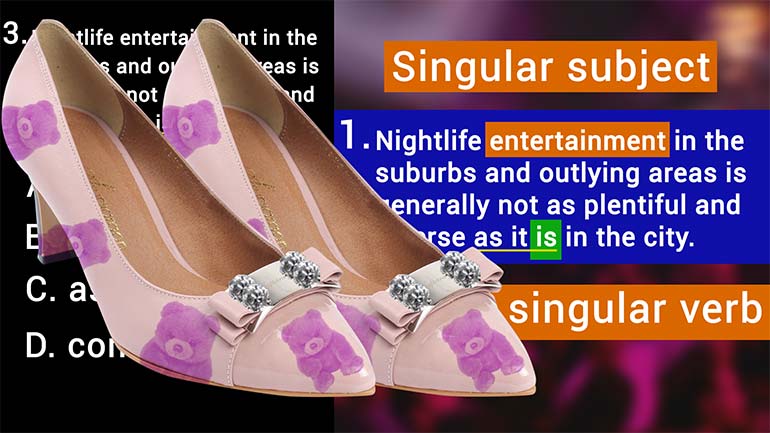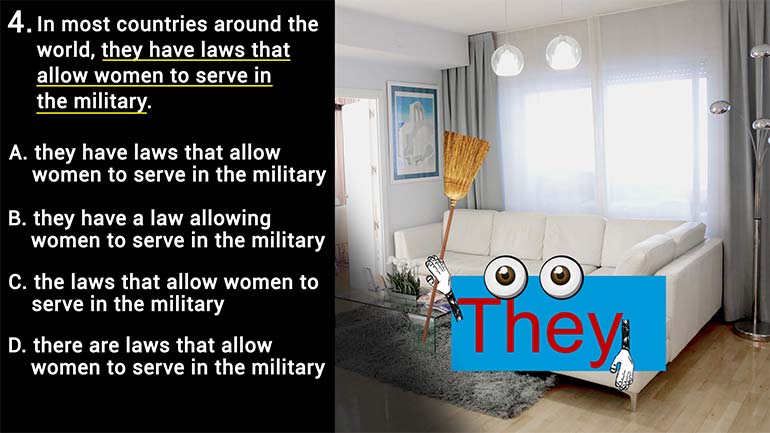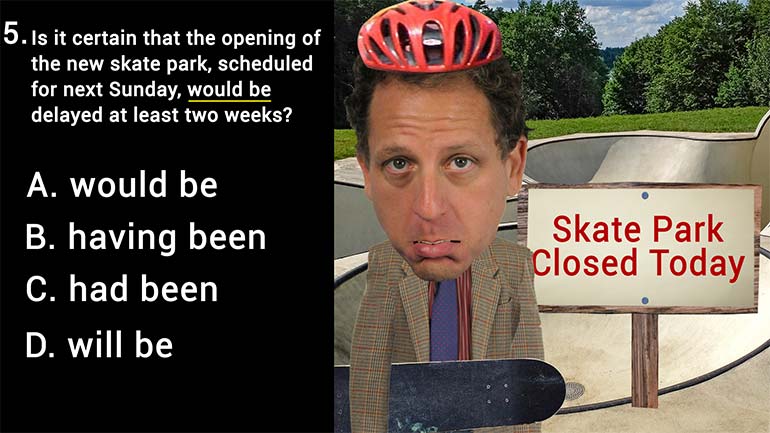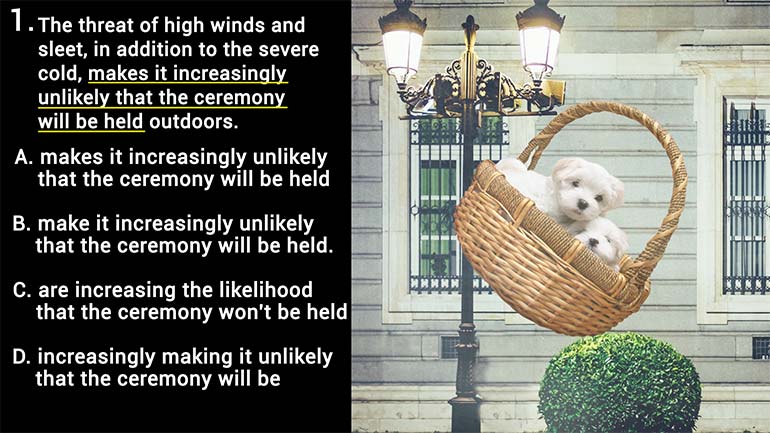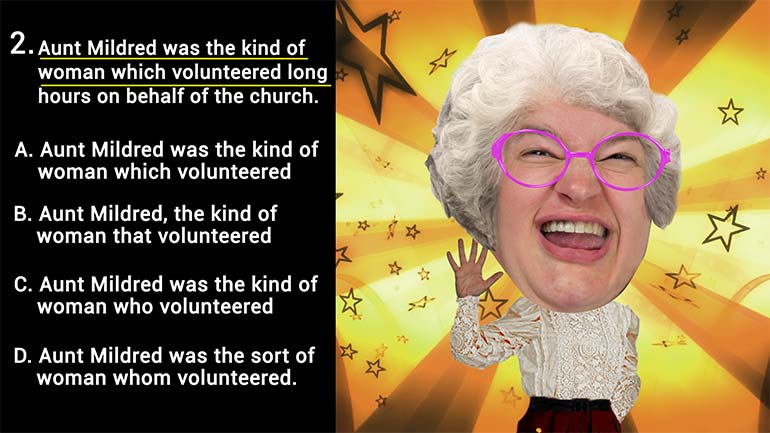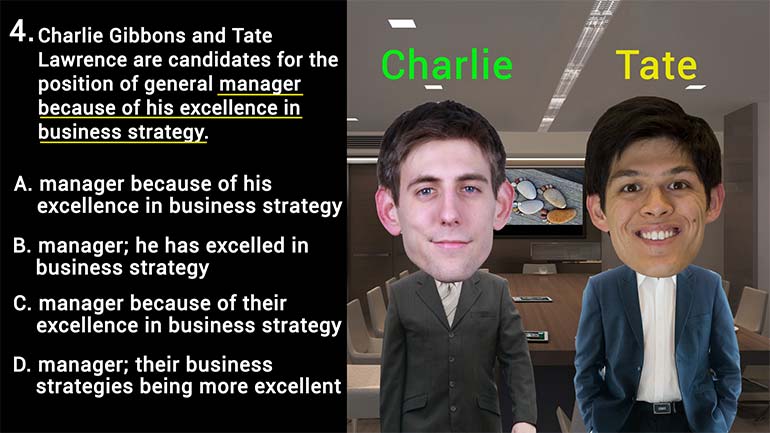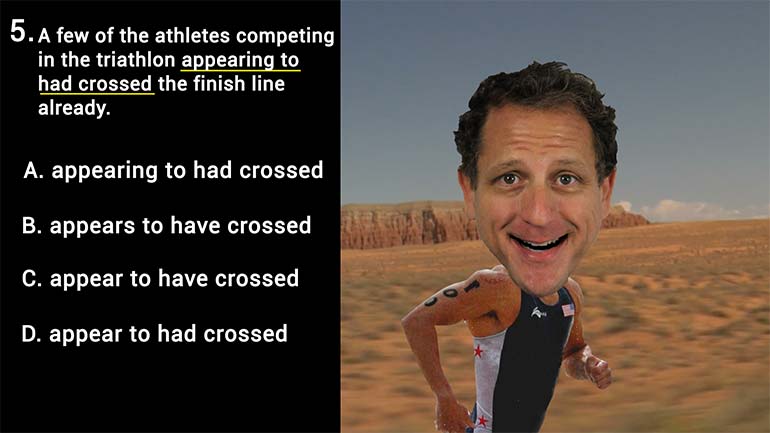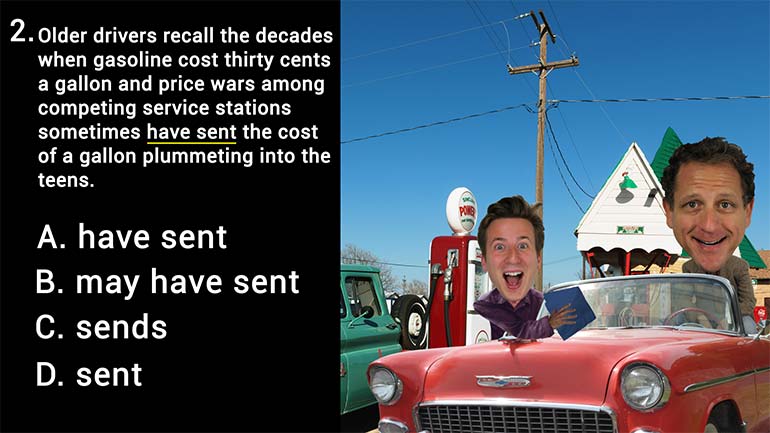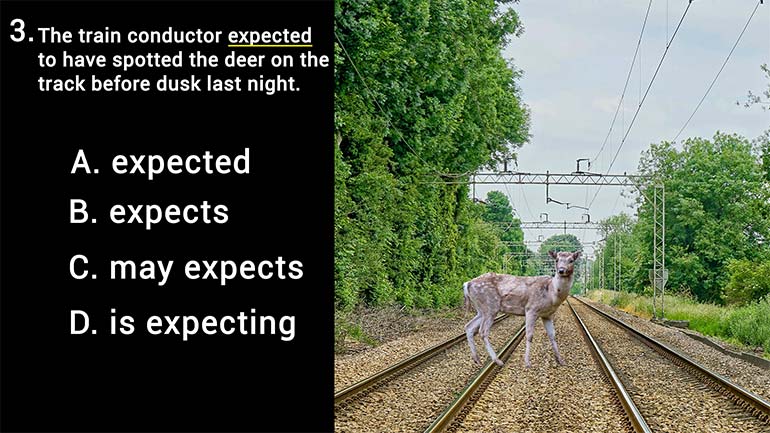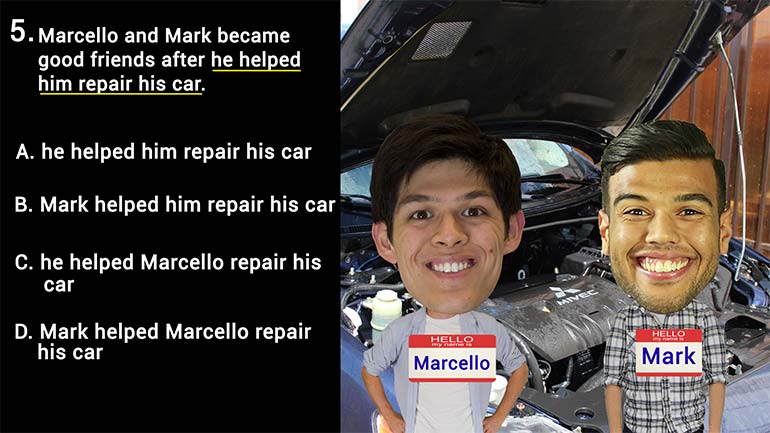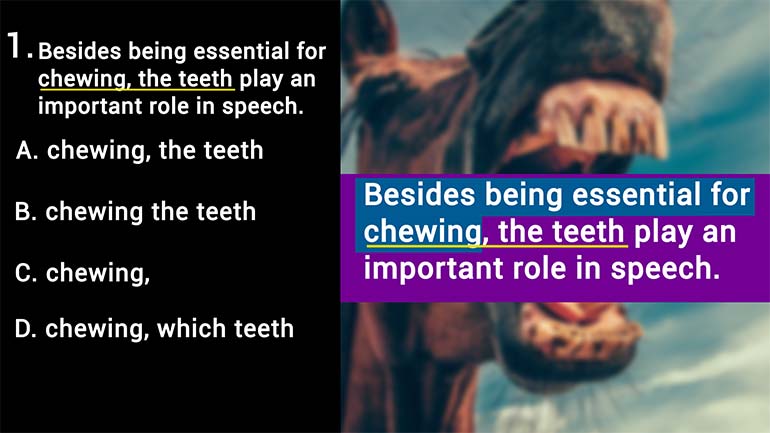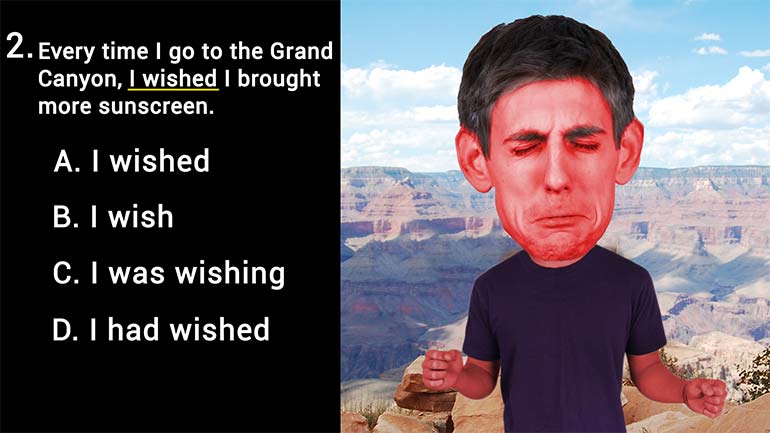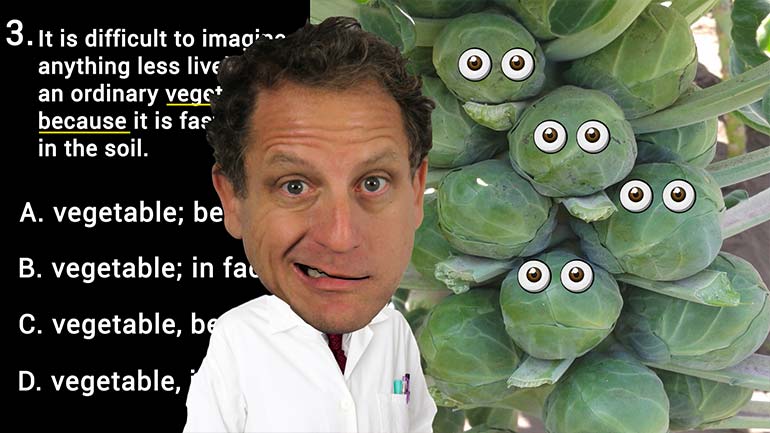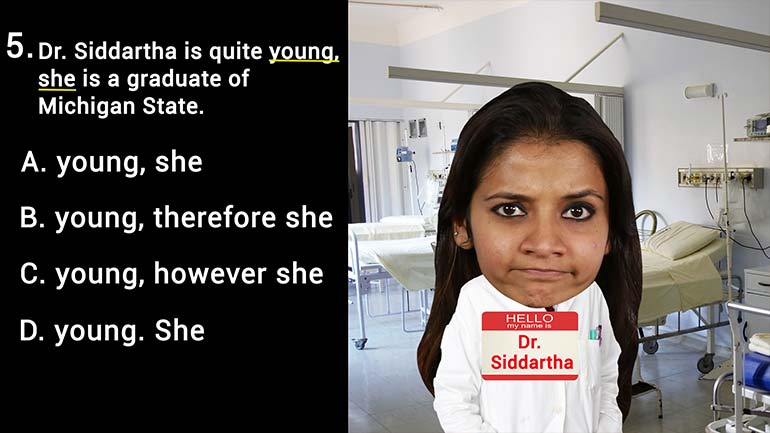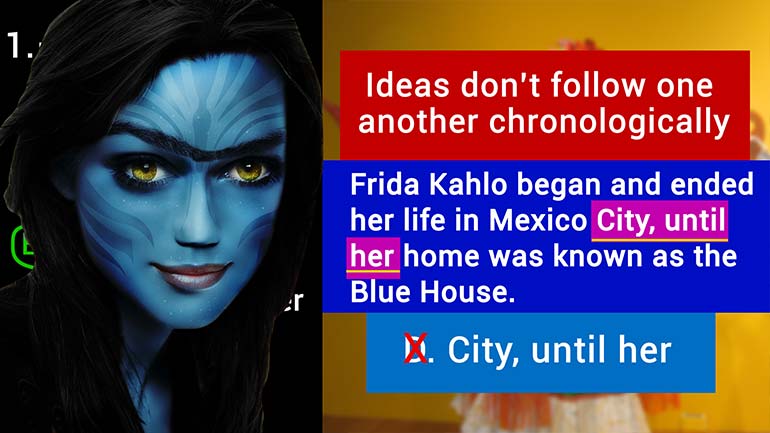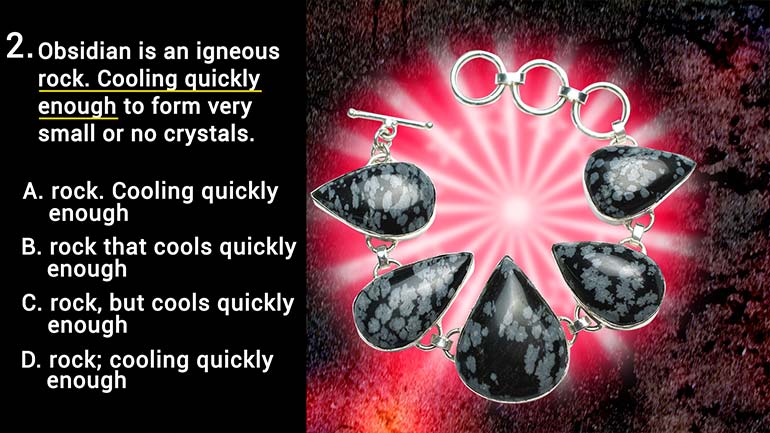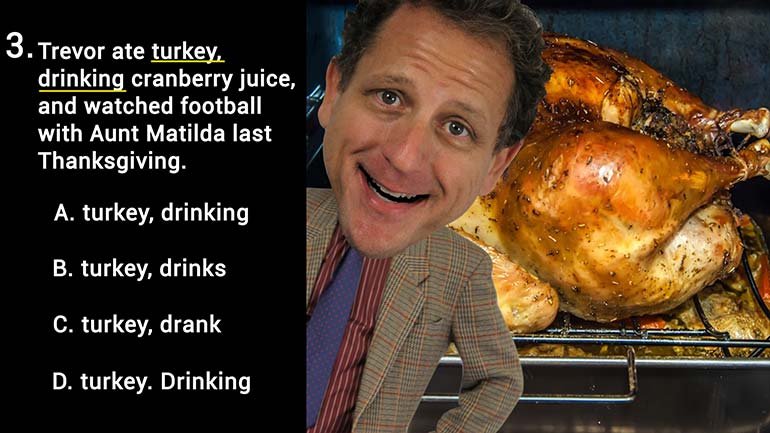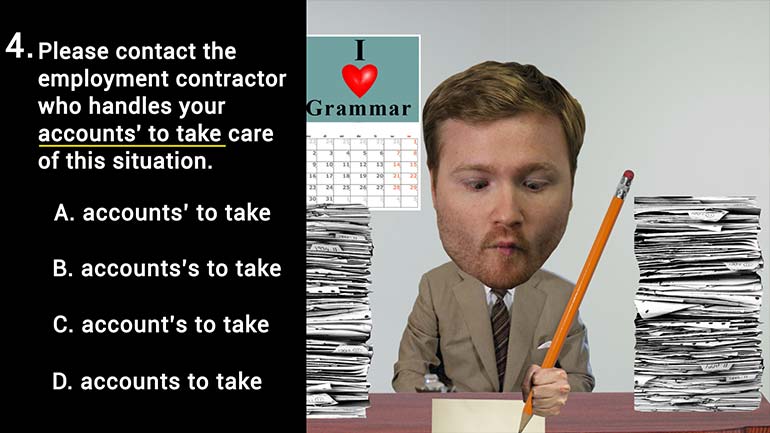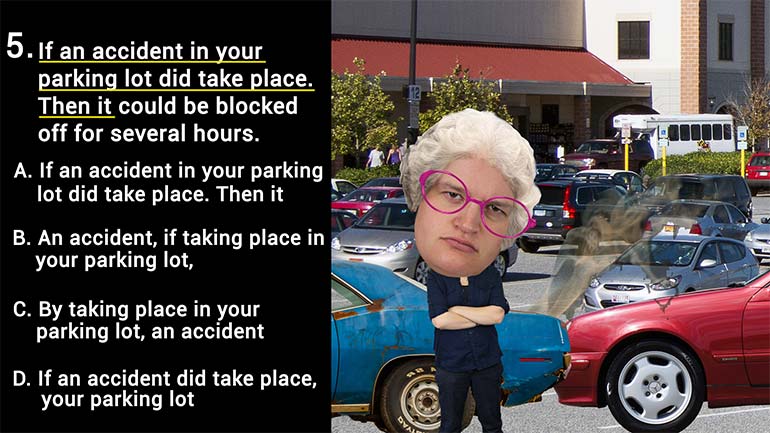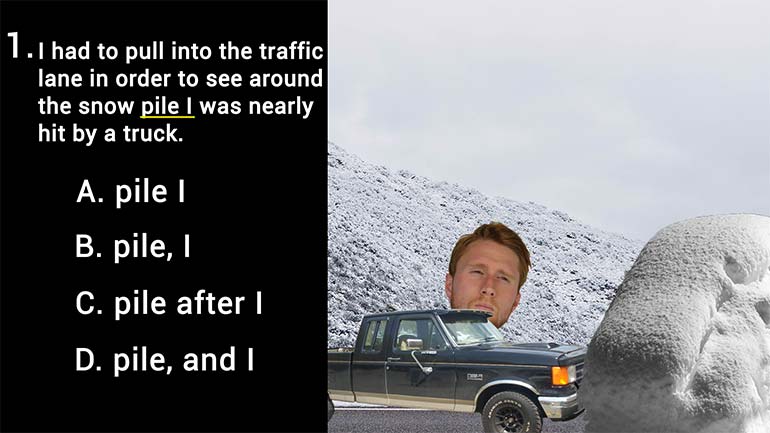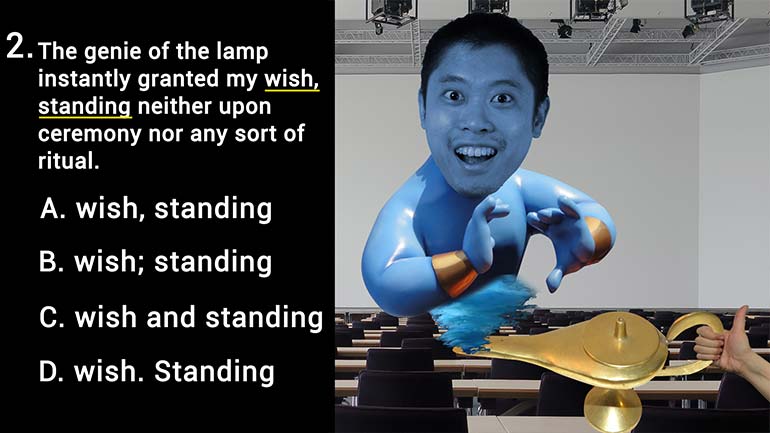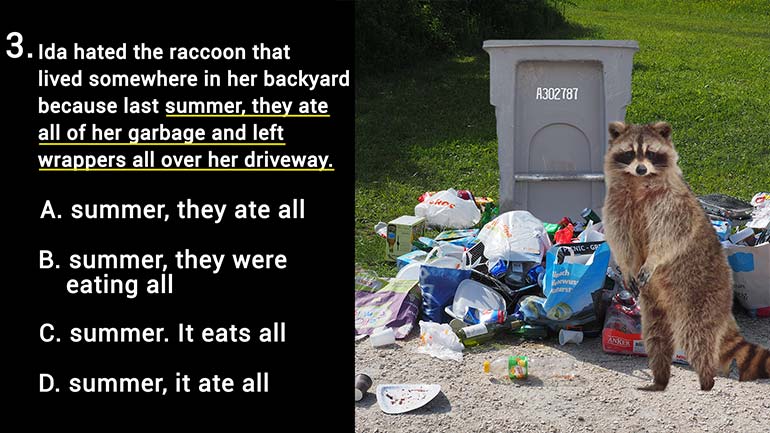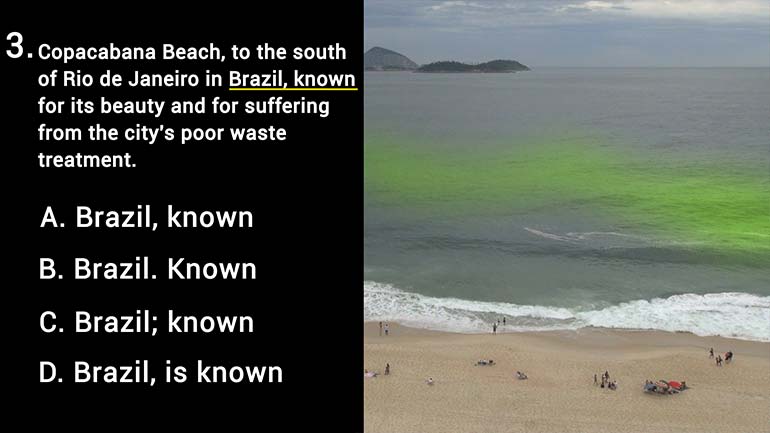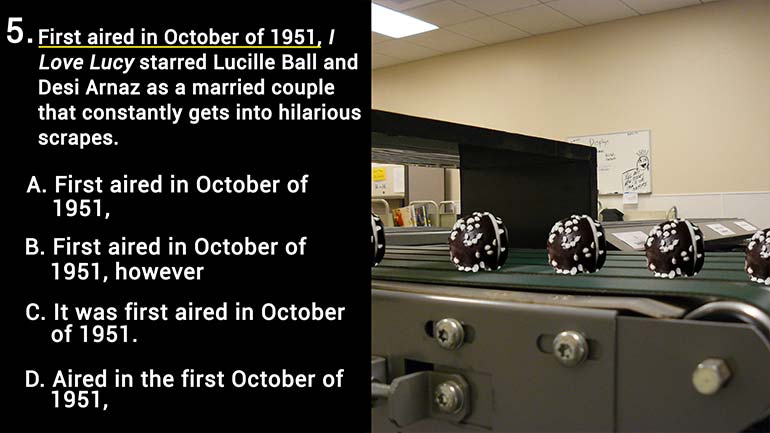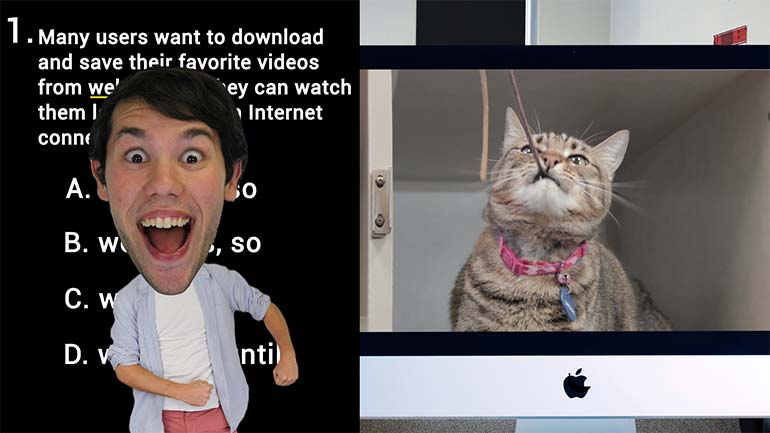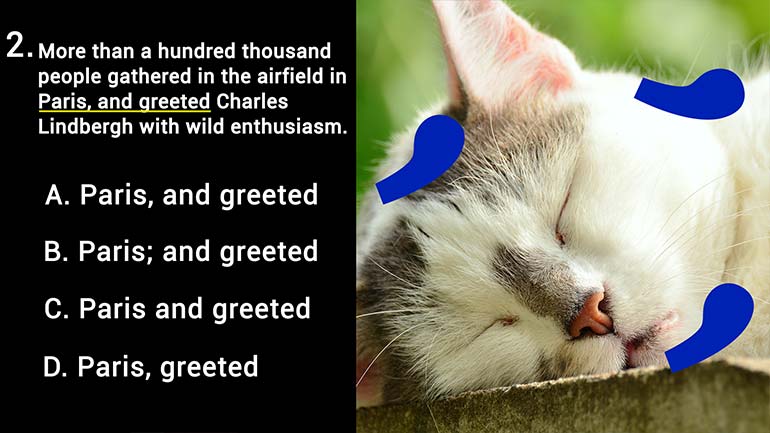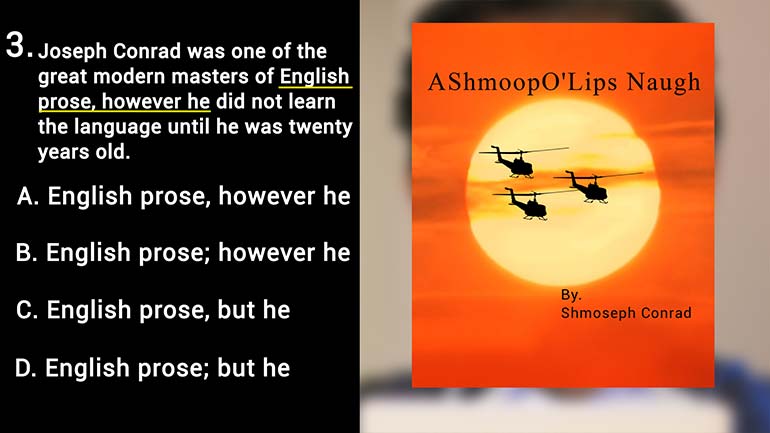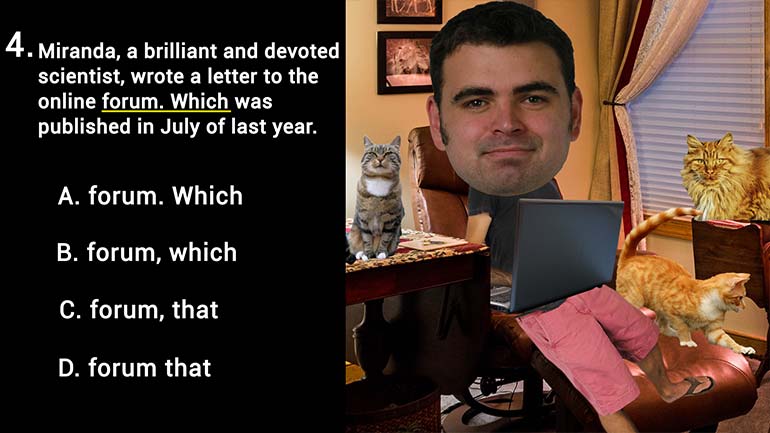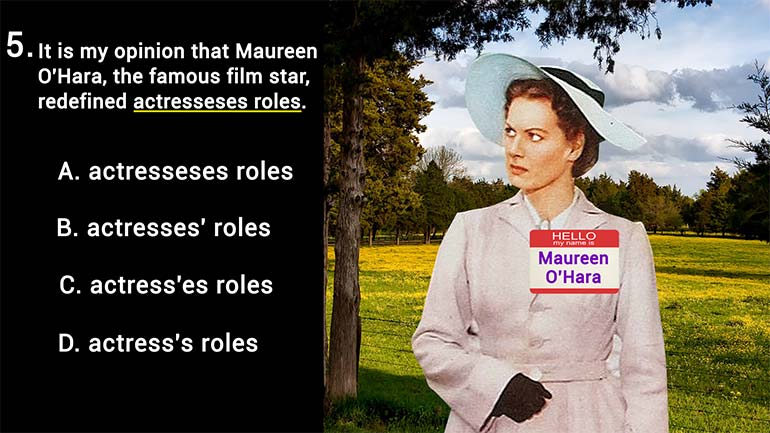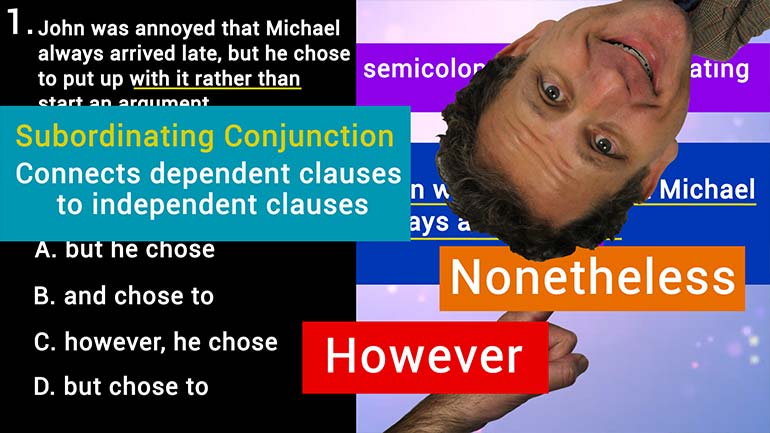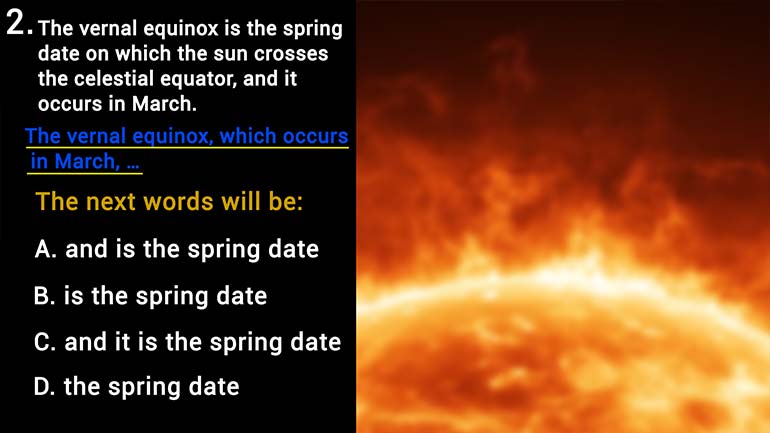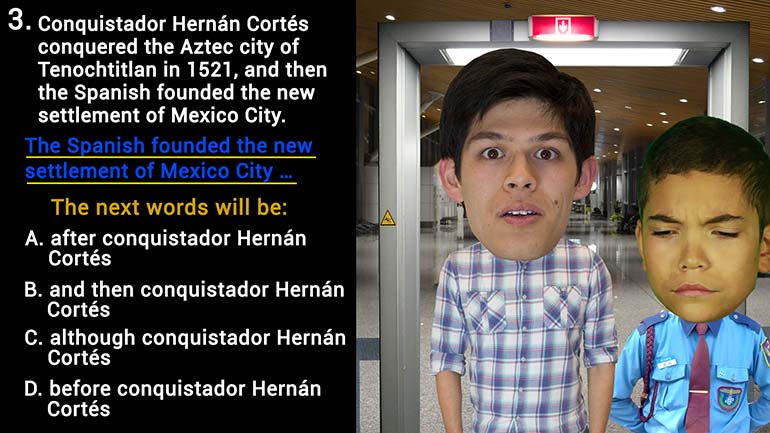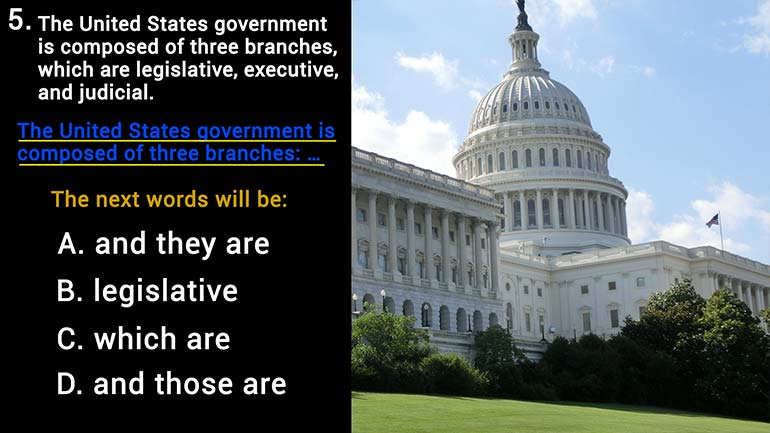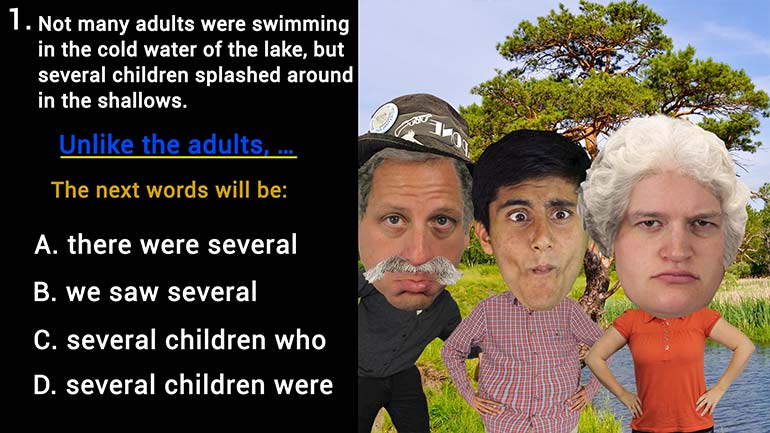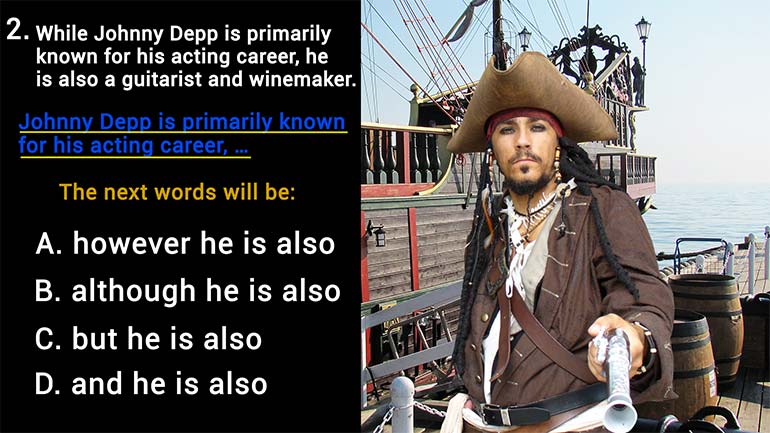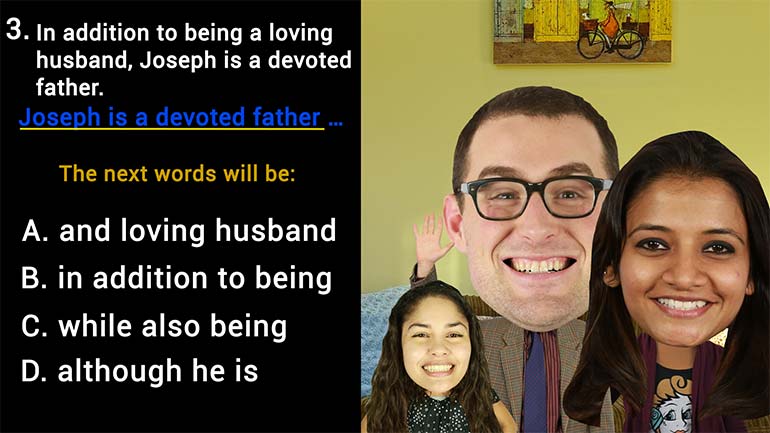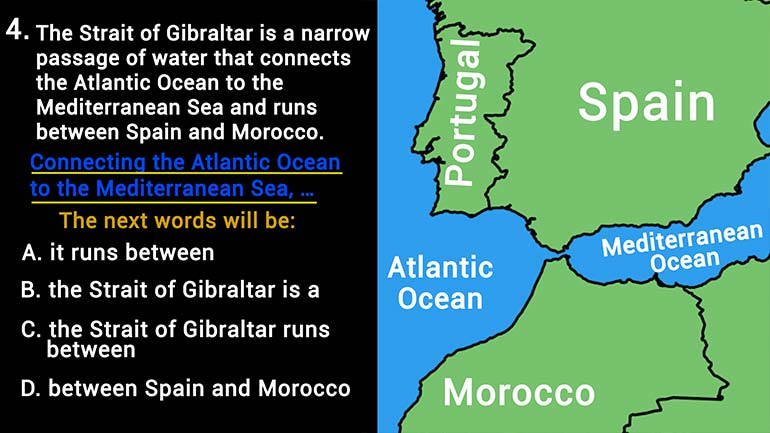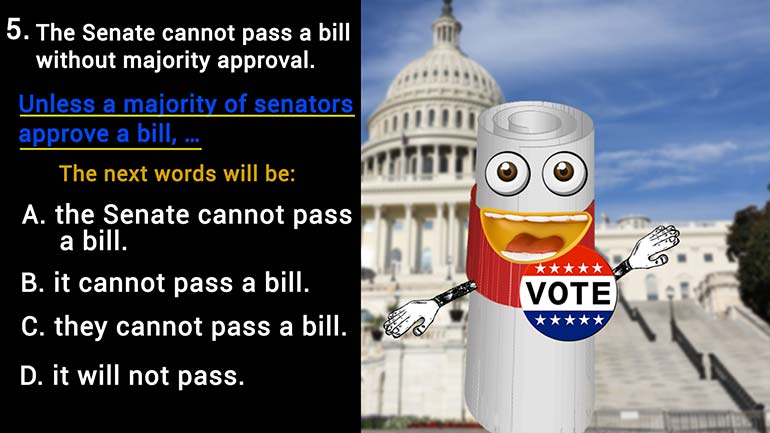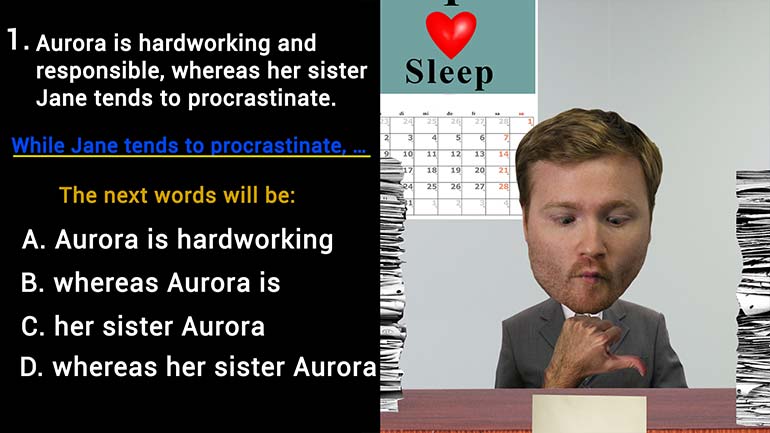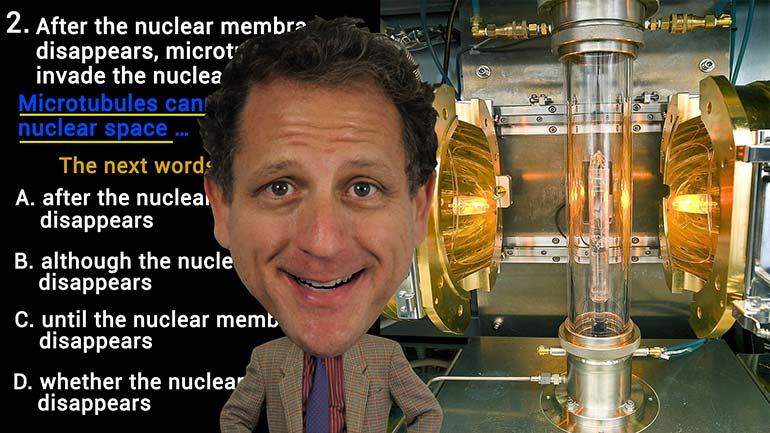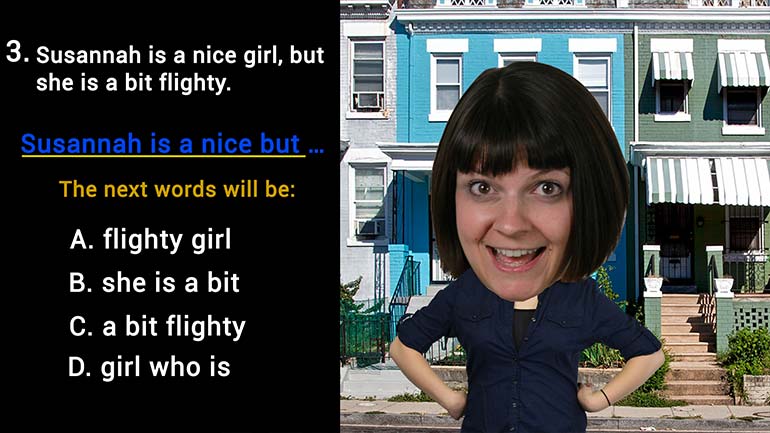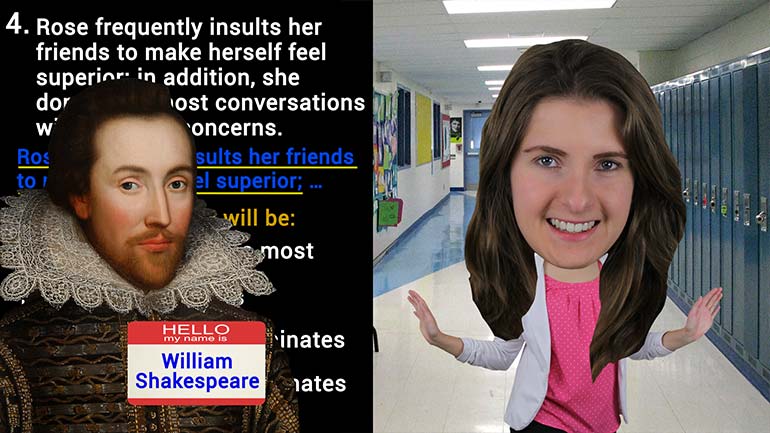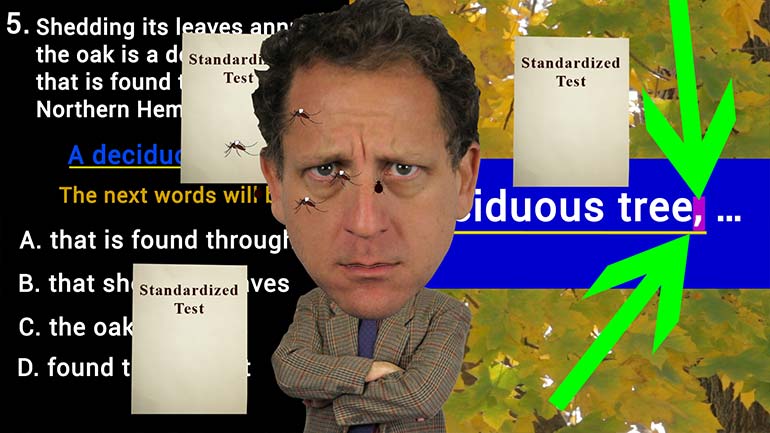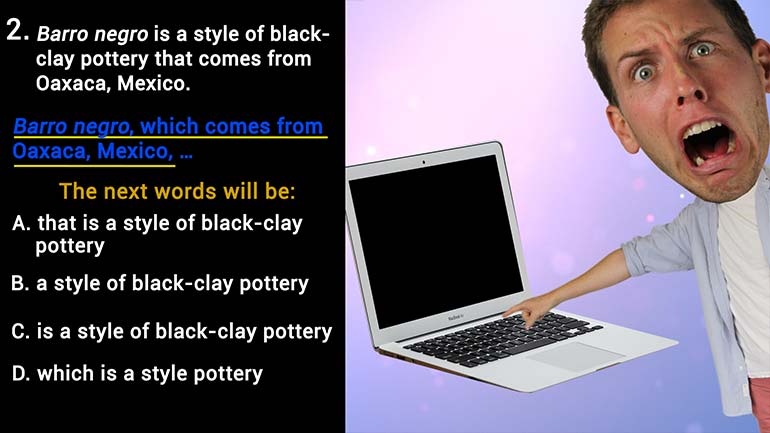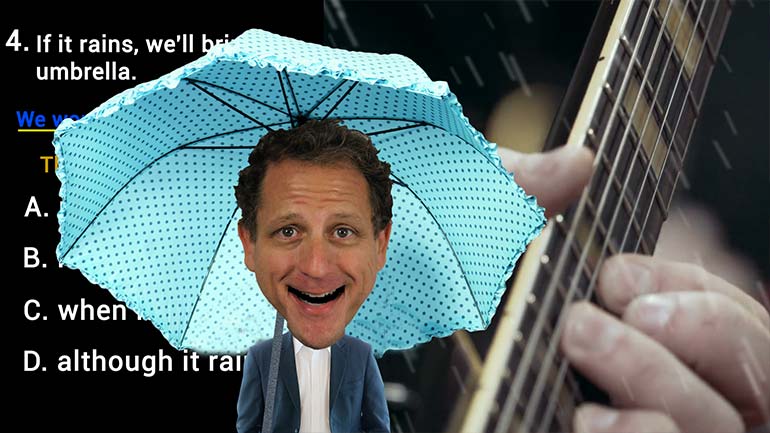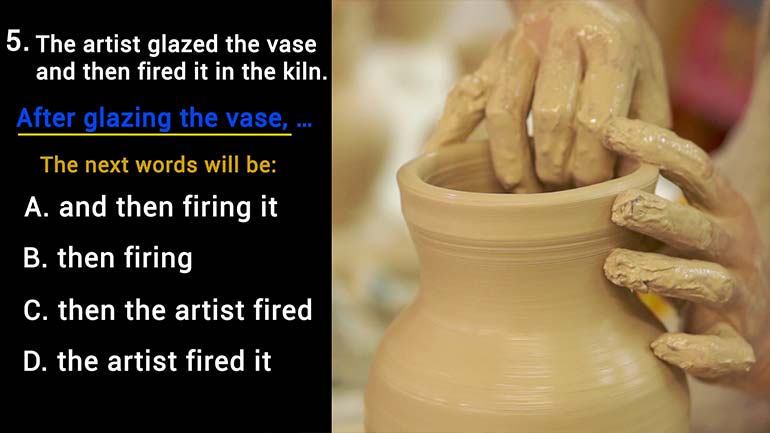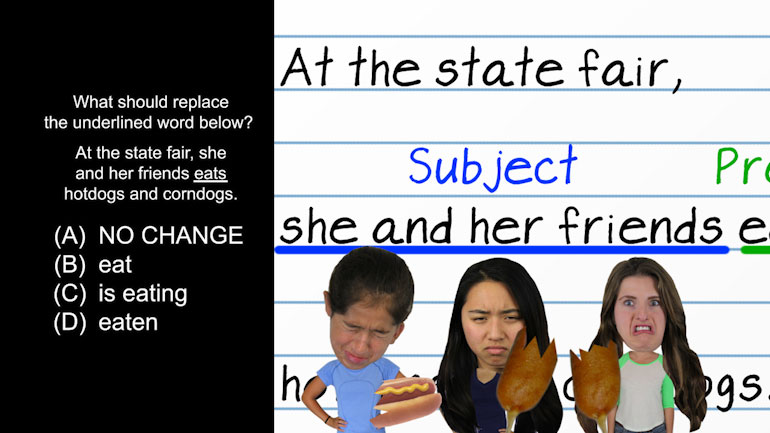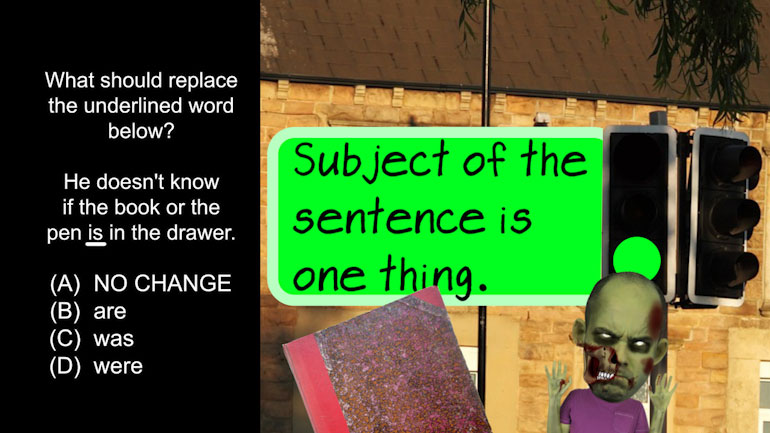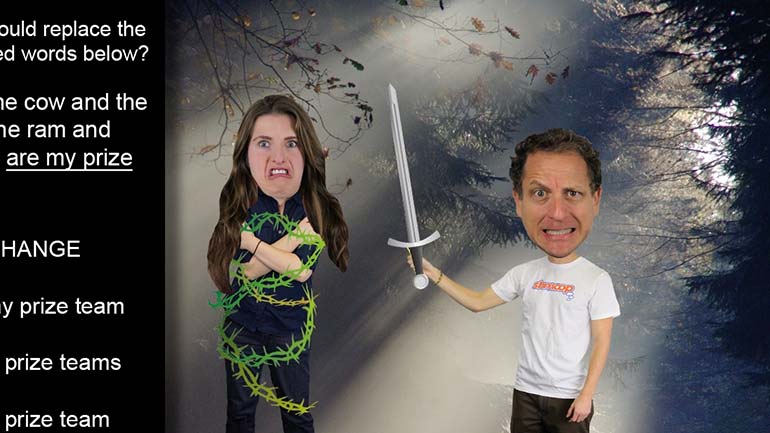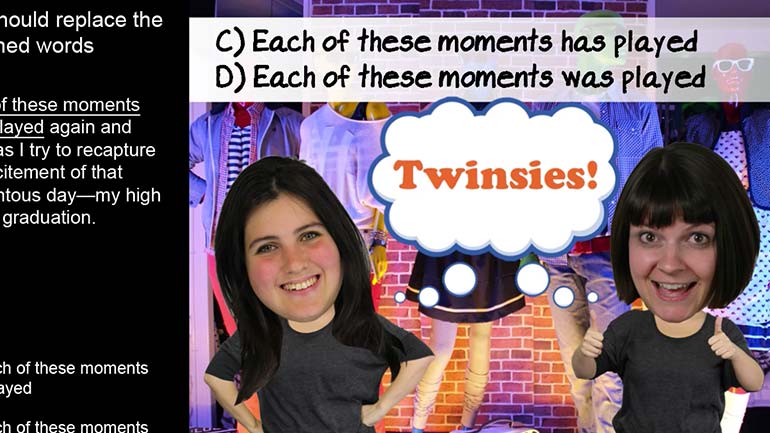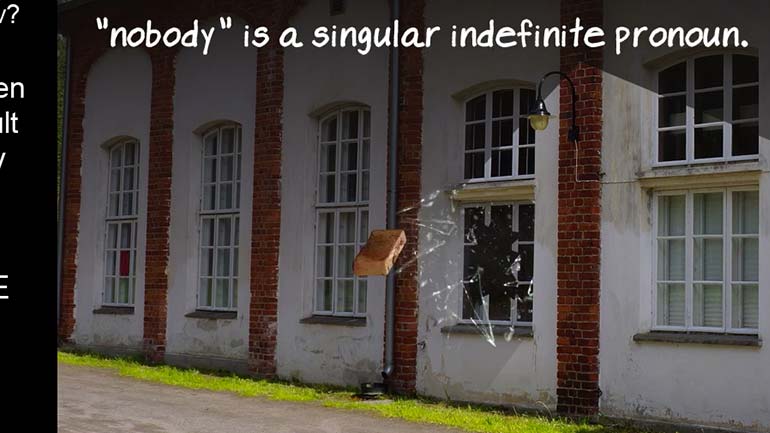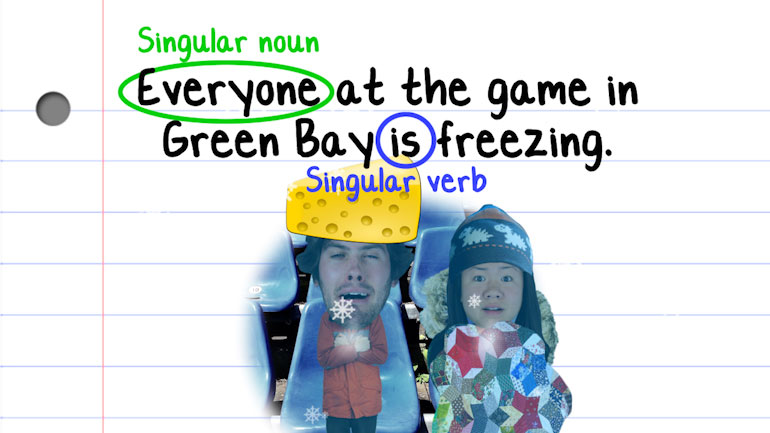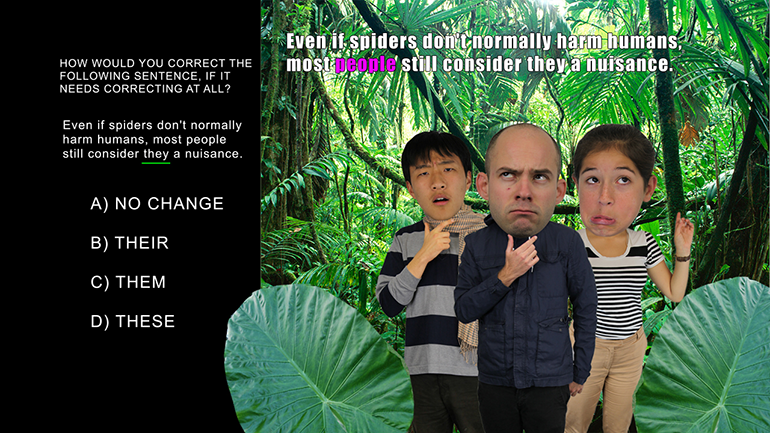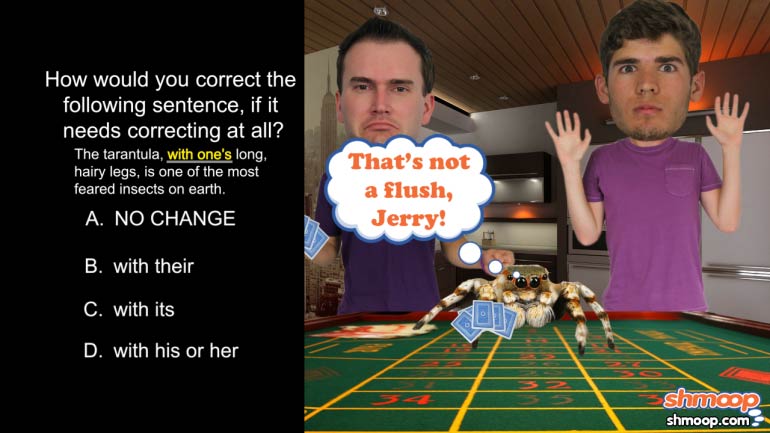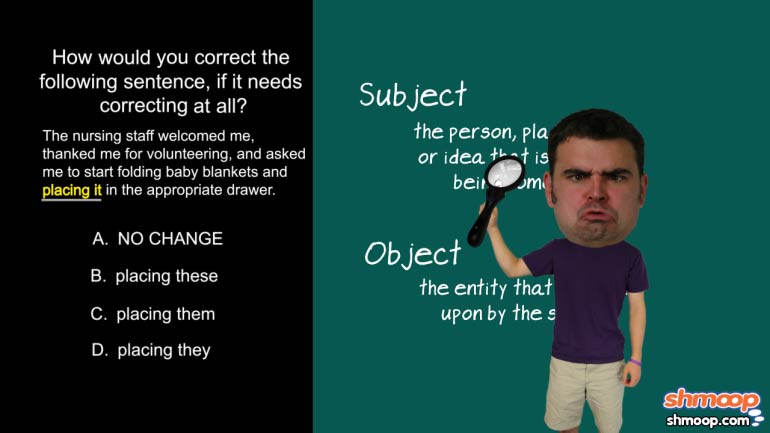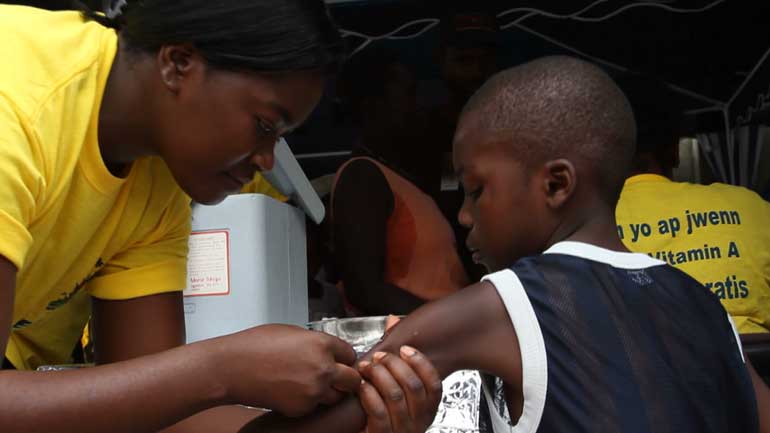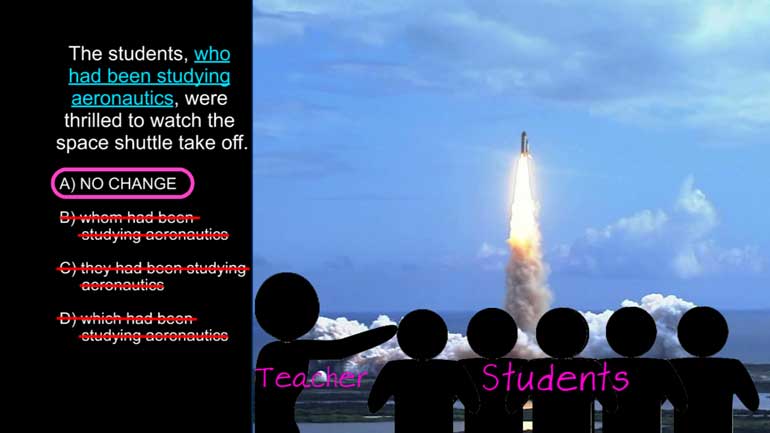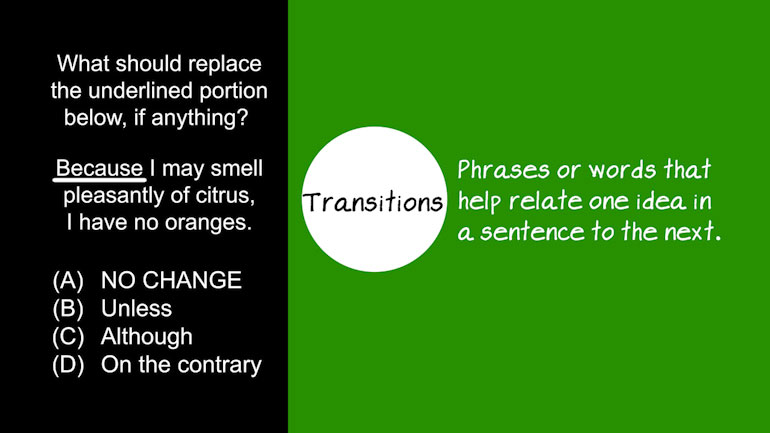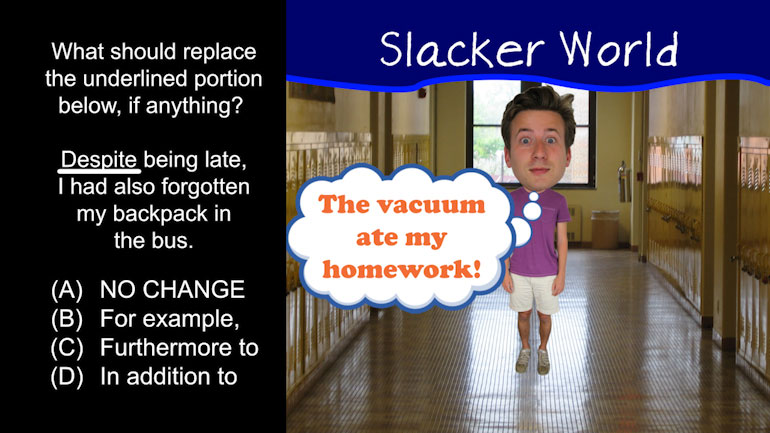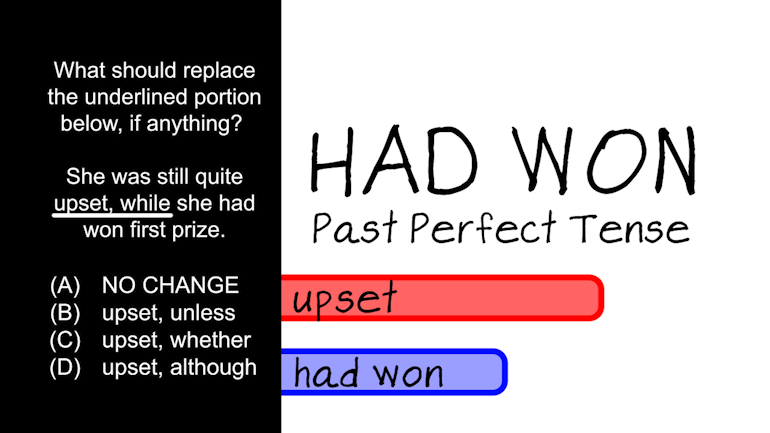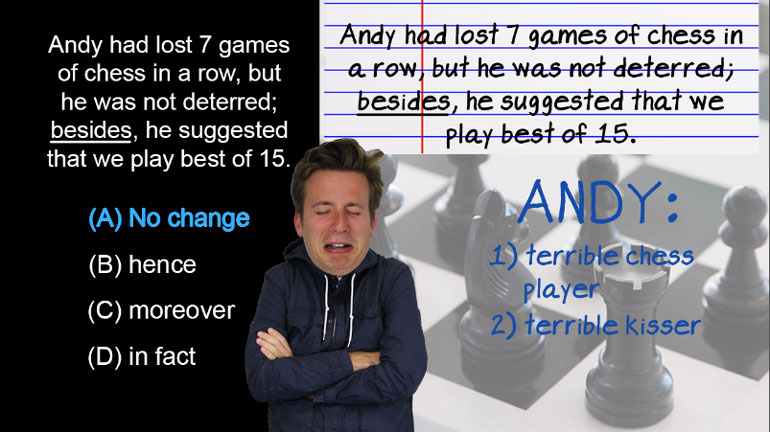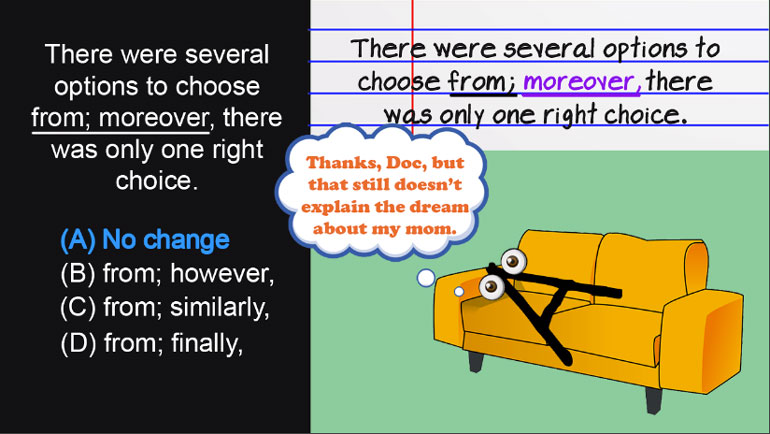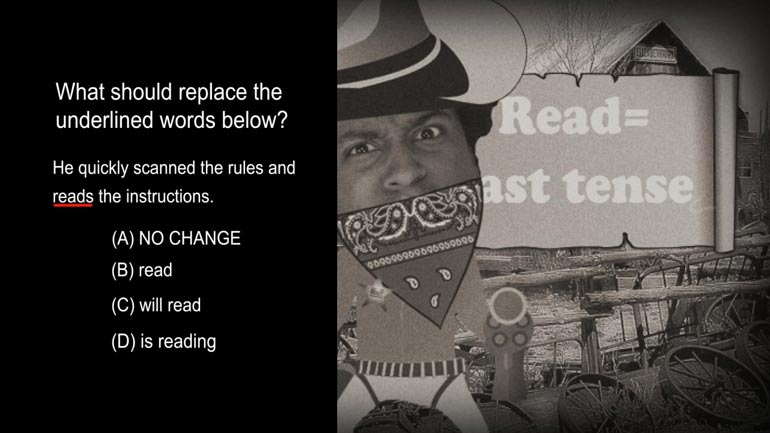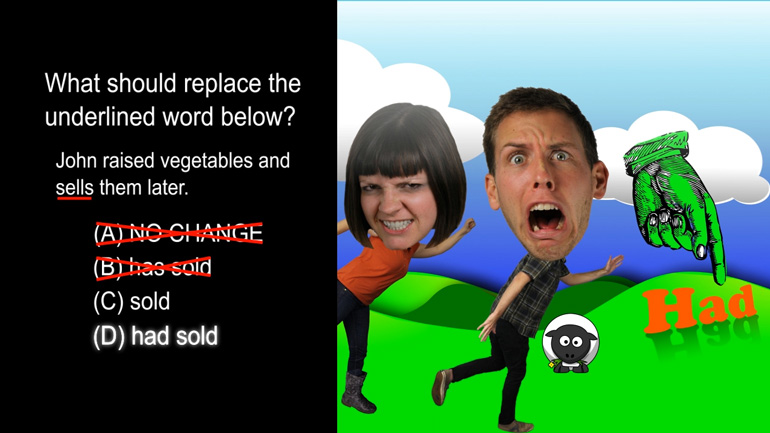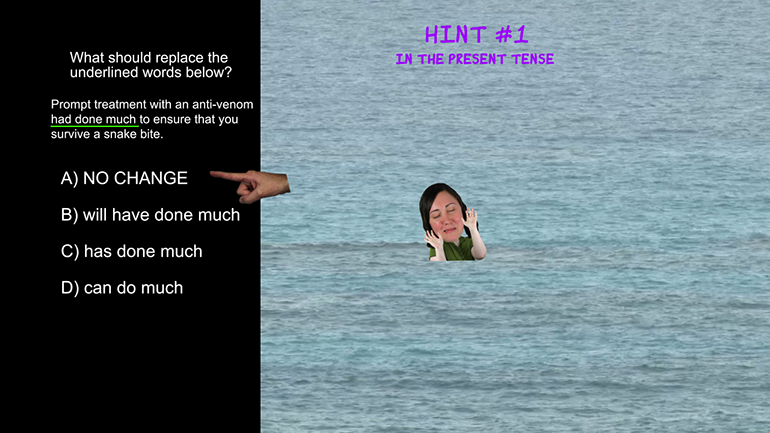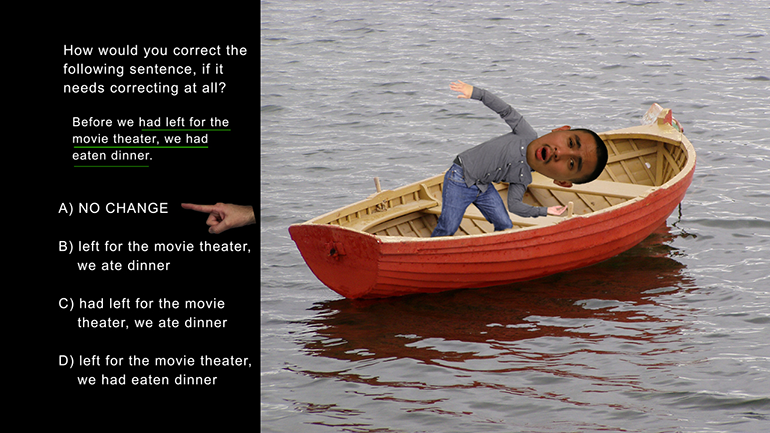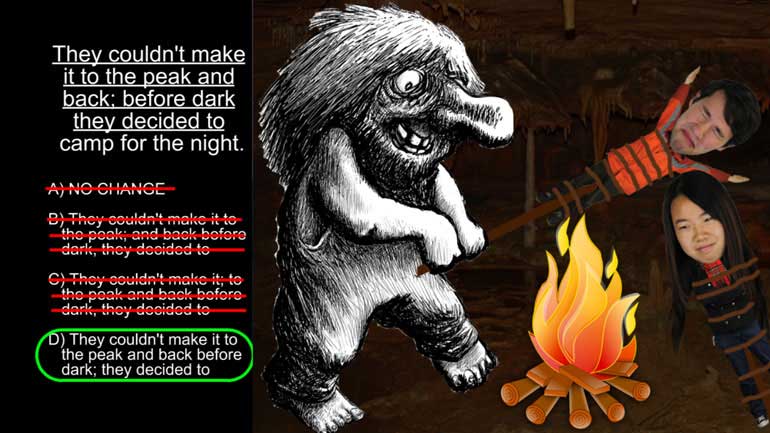ShmoopTube
Where Monty Python meets your 10th grade teacher.
Search Thousands of Shmoop Videos
Writing Assessment Videos 132 videos
Which is the best way to revise and combine sentences 1 and 2?
Where would the following sentence best be placed?
Which of the following is best to insert at the beginning of sentence 8?
ACT English 1.3 Organization 298 Views
Share It!
Description:
ACT English: Organization Drill 1, Problem 3. Can you find the correct transition?
- Rhetorical Skills / Organization: Sentences and Paragraphs
- Product Type / ACT English
- English I EOC Assessment / Introductory and Concluding Paragraphs
- English I EOC Assessment / Organization
- Essay Revision / Coherence, Organization, and Word Choice
- Essay Revision / Rhetorical Effectiveness and Use of Organization
- Rhetorical Skills / Organization
Transcript
- 00:04
Here's your Shmoop du jour, brought to you by first place. Or, as we like to look at
- 00:08
it, last loser.
- 00:13
What should replace the underlined portion below, if anything?
- 00:17
She was still quite upset, while she had won first prize.
- 00:30
This relationship is basically the opposite of cause-and-effect: something happened even
Full Transcript
- 00:36
though something else happened.
- 00:38
So we're looking for the transition that helps get across the idea that something a bit surprising
- 00:43
happened.
- 00:45
(A) is incorrect because "while" signals that two events happened simultaneously.
- 00:50
"Had won" is in the past perfect tense, which indicates that something happened in the past
- 00:56
before something else did...(there was a whole time sequence there)...
- 01:00
...and which means that the events in question couldn't be happening simultaneously. "While"
- 01:05
is all kinds of wrong. That is, unless some kind of multi-dimensional
- 01:09
time warp is occurring. Seems highly unlikely unless you're playing with the "Big Bang" guys.
- 01:16
(B) is incorrect because "unless" sets up a conditional relationship.
- 01:21
As we said before, this sentence isn't trying to show how one thing is caused by another
- 01:24
thing.
- 01:25
Wording like, "She knew she was going to be upset unless she won first prize," would make
- 01:32
sense, but it's unfortunately not an option here.
- 01:35
Our girl is upset even though she won, so choice (B) is nixed.
- 01:40
(C) is incorrect because "whether" is usually used to state alternative possibilities.
- 01:45
"She was upset because she didn't know whether or not she'd won first prize," would be an
- 01:52
example.
- 01:52
In the sentence at hand, however, we know that she definitely won first prize and was
- 01:57
definitely upset. There are no variables here, making (C) a no-go.
- 02:02
Choice (D) is what we've been looking for.
- 02:04
The transition word "although" correctly establishes the contrast between the two ideas, and we're
- 02:10
left to wonder why this girl would be upset, despite the fact that she won.
- 02:14
Somebody should tell her there's nothing worse than a sore winner.
Related Videos
ACT English: Punctuation Drill 2, Problem 3. Where does the semicolon fit best?
ACT English: Punctuation Drill 2, Problem 2. Where should the semi-colon be placed?
ACT English: Punctuation Drill 3, Problem 1. How should this sentence be changed so that it is grammatically correct?
ACT English: Punctuation Drill 3, Problem 2. How should we properly hyphenate the words in this sentence?
ACT English: Punctuation Drill 3, Problem 4. Which choice best formats this list of items?
